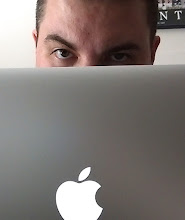A colleague of mine (in a different industry) recently brought to my attention the fact that many people don't understand the idea of intellectual property and copyright law. She was excited about her soon-to-be unveiled Web site and talking about some of the photographs that her Web designer was going to include on the site.
"There' s a ton of pictures out there on the Internet that are for sale by various stock photo agencies," she explained, "and some of the photos are sold by multiple agencies. And if the same photo is sold by several different companies, nobody really owns the copyright on them and they are fair game. You can just download them and edit and use them however you want!"
I am sure that my eyes got big as I didn't quite know what to say. I didn't know where to start explaining that almost everything she said in that statement was untrue and actually illegal!
When a photographer (or nearly anyone else, for that matter) takes a photograph, they are (by law) literally creating a work of art, which that photographer owns. The photographer has the legal right to use the photograph in any way allowed by criminal and civil law. There are a few restrictions on how the photographer can use the image:
- If a person is visible and recognizable in the image, the photographer must have written permission from said person (or their parent if underage) to use the image for commercial use.
- If there is unique, identifiable property in the image, the photographer should have a property release to use the image for commercial use.
Abiding within those guidelines, the image is the domain of the photographer's and is his or her to do with what he or she pleases. That being the case, the artwork does not belong to anyone else, and is not part of the public domain. As to how others can use the photos, the copyright owner's permission must be given in writing before anyone else can do anything with the images in question.
An image appearing on the internet does not mean that it is legally in the public domain for fair use by anyone who happens to find it. If you see an image that you like and would like to use it, it is your responsibility to find to whom the image actually belongs and to get permission from them, in writing, to use it. You may have to pay for the permission to use the image but trust me; the fee will be much lower than the criminal fine, jail time, and civil law suit payout that you will be responsible for if you use the image without first gaining permission.
